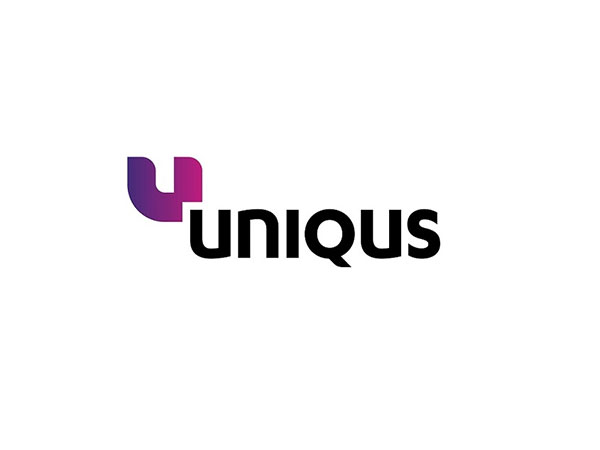Surety Bond: A Game-Changer for Indian EPC Companies and the Construction Industry
Nov 29, 2024

India PR Distribution
New Delhi [India], November 29: In India's rapidly growing construction and infrastructure landscape, securing contractual obligations is paramount. Traditionally, bank guarantees have served as the backbone for ensuring performance, payment security, and contract fulfillment. However, with challenges such as high costs, reduced liquidity, and restricted access for many contractors, the reliance on bank guarantees is being reconsidered. Enter the surety bond: a modern financial tool that is emerging as the perfect replacement for bank guarantees, particularly in the construction sector and for Engineering, Procurement, and Construction (EPC) companies.
This article explores how surety bonds are revolutionizing the industry and why they are a blessing for Indian EPC firms striving to thrive in a competitive and capital-intensive environment.
Understanding Surety Bonds in the Construction Context
A surety bond is a tripartite agreement involving three parties:
* Principal - The contractor or EPC company undertaking the project.
* Obligee - The project owner or beneficiary (e.g., government or private developers).
* Surety - The insurance company or financial institution that guarantees the principal's performance.
In essence, a surety bond assures the obligee that the principal will meet contractual obligations. Should the principal default, the surety steps in to compensate the obligee, ensuring continuity.
Unlike bank guarantees, which require extensive collateral and tie up cash reserves, surety bonds offer a more flexible and cost-efficient mechanism.
Why Surety Bonds are Ideal for the Construction Industry
1. Unshackling Working Capital
For construction and EPC companies, liquidity is critical. Bank guarantees typically demand significant collateral, often in the form of fixed deposits or property. This practice ties up cash that could otherwise be used for working capital, purchasing equipment, or bidding on additional projects.
Surety bonds, on the other hand, do not demand such collateral, allowing companies to utilize their resources more efficiently. This flexibility is particularly advantageous for mid-sized and smaller contractors aiming to expand their footprint.
2. Lower Costs, Higher Profitability
Bank guarantees often come with hefty fees and hidden charges, impacting the profit margins of construction firms. In contrast, surety bonds are generally more cost-effective, with premiums based on the contractor's creditworthiness and project risk profile.
This cost advantage enables contractors to optimize project budgets and improve their bottom lines, making them more competitive in tenders and bids.
3. Faster and Simpler Issuance
In the fast-paced construction world, delays in obtaining financial instruments can jeopardize project timelines. Bank guarantees involve lengthy approval processes, credit evaluations, and documentation.
Surety bonds streamline this process. With the backing of insurance companies and specialized brokers like Epoch Insurance Brokers, contractors can secure surety bonds faster, ensuring they meet tight deadlines and avoid penalties.
4. Enhancing Credibility and Trust
For EPC companies working on large-scale projects, particularly government contracts, credibility is key. Surety bonds provide an additional layer of assurance to project owners, showcasing the contractor's commitment and financial stability. This increased trust can lead to more contract awards and long-term partnerships.
A Boon for Indian EPC Companies
The EPC sector is the backbone of India's infrastructure development, driving mega-projects in highways, power, ports, and urban development. However, the capital-intensive nature of these projects often creates financial bottlenecks for EPC firms.
Surety bonds align perfectly with the sector's unique needs:
* Supporting Ambitious Projects: With reduced financial constraints, EPC companies can bid for larger and more ambitious projects, aligning with India's infrastructural goals like Bharatmala,Sagarmala, and smart city initiatives.
* Encouraging Participation of Smaller Players: Mid-sized and emerging EPC firms, which struggle to meet bank guarantee requirements, can now compete on a level playing field, fostering a more inclusive ecosystem.
* Boosting Project Execution: By freeing up capital, EPC firms can invest in advanced technologies and skilled labor, enhancing efficiency and reducing delays.
Regulatory Push and Industry Potential
The introduction of surety bonds in India received a significant boost with regulatory support. The Indian government and the Reserve Bank of India (RBI) are encouraging the use of surety bonds as part of their broader efforts to improve ease of doing business.
Insurance companies, with guidance from brokers, are now offering tailored surety products for EPC firms and contractors. This shift represents a monumental change in how India's construction industry secures contracts and manages risk.
Challenges to Adoption
While the benefits of surety bonds are compelling, challenges remain:
* Lack of Awareness: Many contractors and project owners are unfamiliar with the concept of surety bonds, limiting adoption.
* Limited Availability: The surety bond market in India is still developing, with few insurance providers offering comprehensive products.
* Risk Perception: Insurers may hesitate to issue bonds to contractors with limited credit history or a history of project delays.
These challenges underscore the importance of awareness campaigns, capacity building, and regulatory refinements to unlock the full potential of surety bonds in India.
The Role of Insurance Brokers
Insurance brokers like Epoch Insurance Brokers play a pivotal role in driving the adoption of surety bonds. By bridging the gap between contractors and insurers, brokers:
* Educate contractors about the benefits and nuances of surety bonds.
* Help assess project risks and secure competitive premiums.
* Advocate for the contractor's credibility with insurers, facilitating faster approvals.
With the right guidance, Indian EPC companies can leverage surety bonds to unlock new opportunities and achieve sustainable growth.
Conclusion
The transition from bank guarantees to surety bonds marks a paradigm shift for India's construction and EPC sectors. By offering unmatched financial flexibility, cost efficiency, and enhanced project credibility, surety bonds are not just an alternative but a superior solution for securing contractual obligations.
As India embarks on its ambitious infrastructural journey, surety bonds will be instrumental in empowering EPC companies to deliver on time and on budget. With proactive adoption and industry-wide collaboration, this innovative tool can transform the construction landscape, making India's infrastructure dreams a reality.
Pankaj Chauhan is a seasoned professional MD & CEO at Epoch Insurance Brokers, committed to enabling Indian businesses with cutting-edge risk management solutions
(ADVERTORIAL DISCLAIMER: The above press release has been provided by India PR Distribution. ANI will not be responsible in any way for the content of the same)









